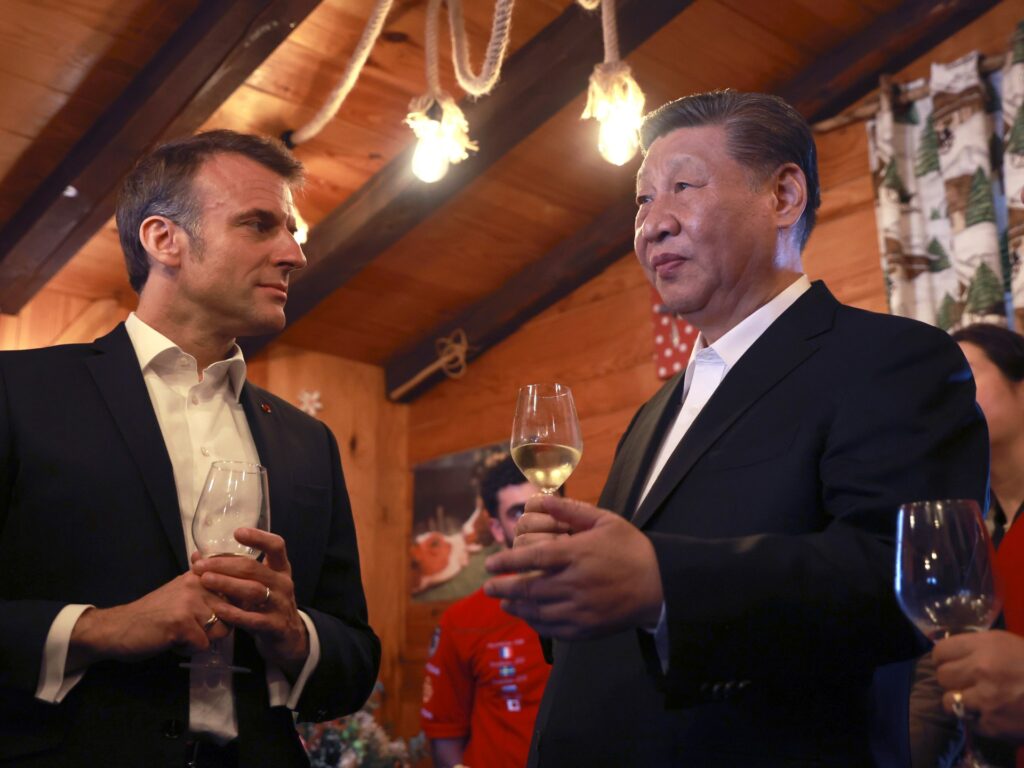Chinese President Xi Jinping, left, and Hungarian Prime Minister Viktor Orban, right, address the press after their official talks in the Carmelite Monastery, the prime minister’s office, at Buda Castle district in Budapest, Hungary on May 9, 2024 [Pool via AFP]
In contrast to Xi’s stop in France, his visits to EU candidate country Serbia and EU member state Hungary were marked by pledges to deepen political ties and expand investments in eastern and central Europe. Both countries are participants in Xi’s signature Belt and Road Initiative, the ambitious infrastructure plan which aims to connect Asia with Africa and Europe, and also have close ties with Russia.
In Belgrade, Vucic, the Serbian president, signed up to Xi’s vision of a “global community of shared future” and the two leaders hailed an “ironclad partnership” while also announcing that a free trade deal signed between their two countries last year would come into effect on July 1. Other economic promises included establishment of new air links between the two countries and taking in imports of Serbian agricultural products.
Yu, the political economist at LSE, said Xi’s visit to Belgrade on the 25th anniversary of NATO’s bombing of the Chinese embassy in the city, was meant to make “clear that China and Russia share a common objection to NATO’s east expansion”. It also “reveals that there should be no illusion that China will bow down to Western pressure to curtail economic partnership with Russia,” she said.
In Budapest, Xi pledged more investments in transport and energy, including the construction of a high-speed railway connecting the capital city centre to its airport and cooperation in the nuclear sector, according to Hungarian officials.
Xi also promised to move forward on a $2.1bn project to connect the Hungarian capital with the Serbian capital. The plan, which is mostly financed by a loan from China, is part of the Belt and Road Initiative.
All this demonstrates Xi’s keenness “to reintroduce the Cold War ‘Second World’ as a significant geostrategic player,” said Yu. “With China’s economic support, the periphery of the EU can become more significant European economic players, boasting higher speed of growth and delivering high-tech supply chains,” she said.
To China, Hungary serves as a gateway to the EU trade bloc and Yu added that Beijing’s growing partnership with Hungary could also “potentially deem the EU’s sanctions on Chinese EVs [electric vehicles] ineffective”.
Source link : https://www.aljazeera.com/news/2024/5/10/key-takeaways-from-xi-jinpings-european-tour-to-france-serbia-and-hungary
Author :
Publish date : 2024-05-10 07:00:00
Copyright for syndicated content belongs to the linked Source.
